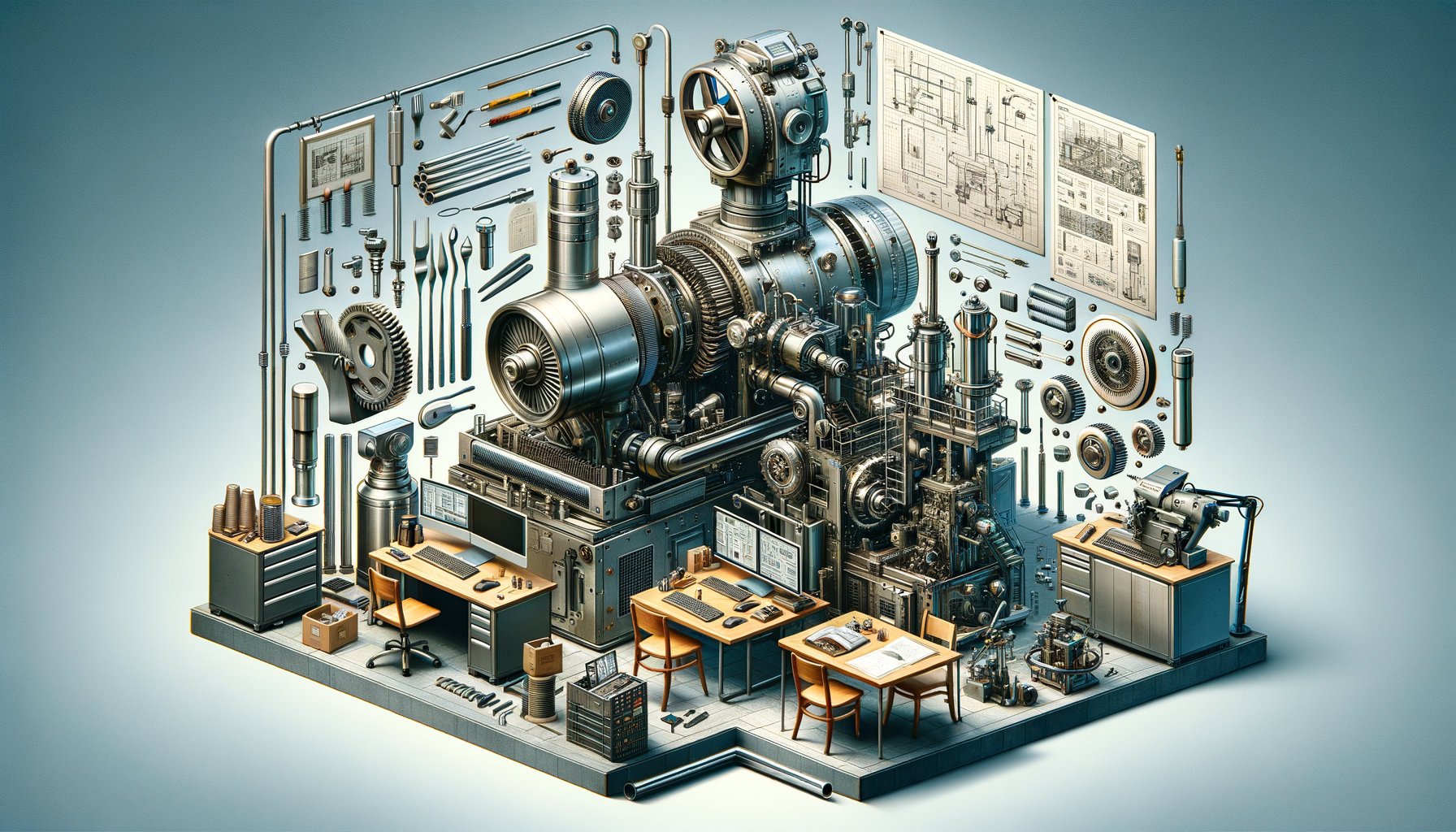Introduction to Industrial Machines
In today’s fast-paced world, the need for efficiency and productivity is paramount, whether at home or in a business setting. Industrial machines play a crucial role in achieving these goals by automating and streamlining various tasks. These machines are designed to handle heavy-duty operations, reduce manual labor, and increase output, making them invaluable assets in diverse environments.
From manufacturing to home workshops, industrial machines have revolutionized the way we approach tasks. Their ability to perform complex operations with precision and speed not only enhances productivity but also ensures consistency in quality. This article delves into the different types of industrial machines, their applications, and how they can transform workflows in both home and business settings.
Types of Industrial Machines
Industrial machines come in various forms, each tailored to specific tasks and industries. Understanding the types of machines available can help in selecting the right one for your needs:
- CNC Machines: Computer Numerical Control (CNC) machines are used for precision cutting and shaping of materials. They are widely used in manufacturing for creating intricate parts with high accuracy.
- 3D Printers: These machines have gained popularity for their ability to create three-dimensional objects from digital files. They are used in prototyping, manufacturing, and even in home settings for creative projects.
- Textile Machines: Essential in the fashion and textile industries, these machines automate processes such as weaving, knitting, and sewing, significantly speeding up production.
- Packaging Machines: Used in various industries to automate the packaging process, these machines ensure products are packed efficiently and consistently.
Each type of machine offers unique benefits and is suited to specific tasks, making it important to assess your needs before making a selection.
Applications in Business Settings
In business environments, industrial machines are essential for maintaining competitive advantage. Their applications span across multiple industries, enhancing operational efficiency and reducing costs:
- Manufacturing: Machines like CNC and laser cutters are vital in producing components with precision. They reduce waste and increase the speed of production, leading to cost savings.
- Food Processing: Industrial machines automate tasks such as slicing, mixing, and packaging, ensuring consistency and hygiene in food production.
- Construction: Heavy machinery like excavators and cranes are indispensable in construction, enabling the handling of large-scale projects with efficiency and safety.
- Pharmaceuticals: Machines in this industry ensure the precise mixing and packaging of medicines, maintaining quality and compliance with regulations.
By integrating industrial machines into business operations, companies can achieve higher productivity levels and maintain a strong market presence.
Benefits for Home Use
Industrial machines are not limited to business applications; they also offer numerous benefits for home use, particularly for hobbyists and small-scale producers:
- Home Workshops: Tools like CNC routers and 3D printers allow individuals to create custom parts and projects, fostering creativity and innovation.
- DIY Projects: With access to industrial machines, home users can undertake complex DIY projects with professional results, from furniture making to electronics.
- Small-Scale Production: For those running home-based businesses, machines like sewing and embroidery machines can significantly enhance production capabilities.
- Cost Savings: By creating items at home, users can save on costs associated with purchasing finished products, while also enjoying the satisfaction of crafting their own goods.
Industrial machines empower home users to explore new possibilities and achieve professional-level outcomes in their projects.
Conclusion: Transforming Workflows with Industrial Machines
Industrial machines are transformative tools that enhance efficiency and productivity in both home and business settings. By automating tasks and ensuring precision, these machines enable users to achieve more in less time, with consistent quality. Whether it’s in a large manufacturing plant or a small home workshop, the impact of industrial machines is undeniable.
As technology continues to advance, the capabilities of industrial machines will only grow, offering even more opportunities for innovation and improvement. Embracing these tools can lead to significant improvements in workflow, ultimately driving success and satisfaction in various endeavors.




Leave a Reply